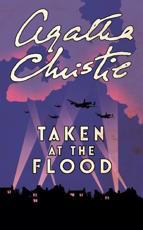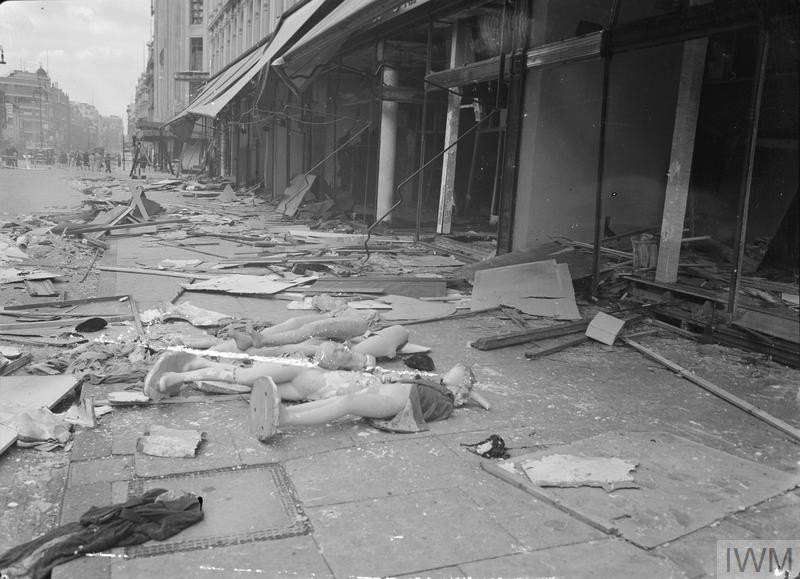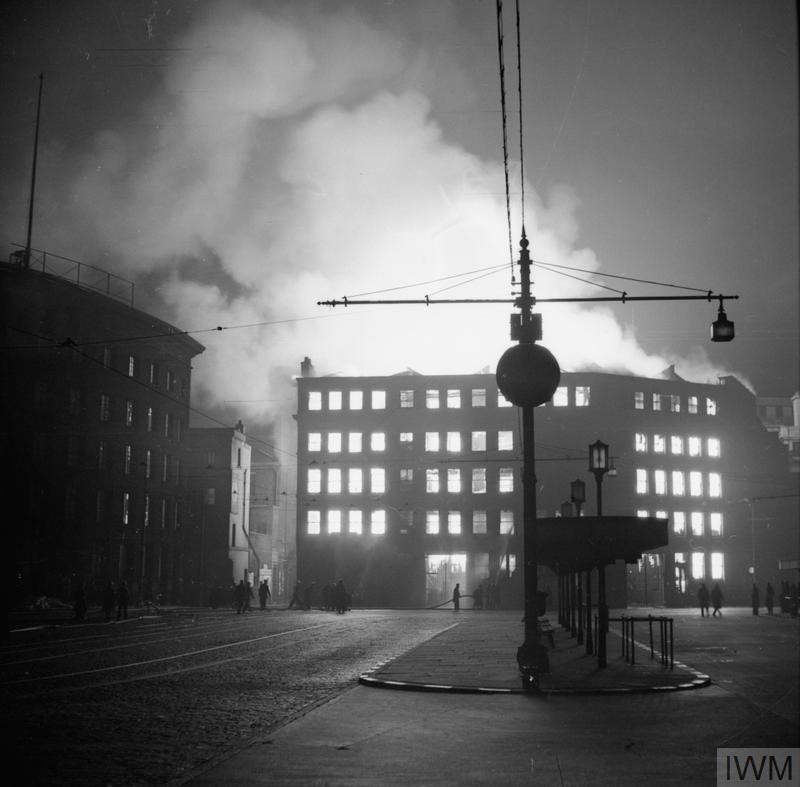
Poirot Score: 61
Taken at the Flood
☆☆☆
Reasons for the Poirot Score
This has a complex plot, with sub-plots. In true Christie style, every character has a secret. Because there are so many different hares running, some are fairly clued, and others are not. It should be highly enjoyable from the intricacies of the excellent twists and turns, but all humour is extinguished from this book, which makes it a very bleak read. Christie was in utter despair when she wrote this, working through bereavement. Her son-in-law had just been killed in action, in the War. This left Christie’s daughter, Rosalind, a war widow in her 20s with a tiny baby. Christie had to shoulder this burden, and be strong for them. It cannot be a coincidence that the character Rosaleen is a young woman whose husband was killed by a bomb in the war, in this novel.
It makes one realise just how funny and consequently enjoyable most other Christies are, when one reads such a bitter one.

Click here for full Review (spoilers ahead)
Trivia

The Blitz
At the start of Taken at the Flood, Gordon Cloade and most of the servants are killed in the blitz on 5th Oct 1944, in their house in Campden Hill, London.
Taken from George Beardmore: Civilians at War: Journals, 1938-46:
23 February 1944
The siren goes about 2 a.m. or at almost any time. It always wakes me. I rouse Jean, we leap into our outdoor things, and while Jean grabs a bagful of valuables and papers, I come down with Victoria in my arms, as often as not fast asleep, and we hurry out to the reinforced Shelter so conveniently placed near the front gate…A plane zooms overhead. Shrapnel cracks on the rooftops. And gradually the noise dies down and the lights go out…

The State of the Nation after WW2
Mrs Marchmont selfishly complains about the cost to her of paying: ‘War Damage Insurance’
Many British home owners did not have any insurance, especially working-class families. Even if they did, ‘acts of war’ were not covered. Churchill describes being at Ramsgate at an early point of the Blitz.
Churchill sheltered in a tunnel during an air raid. When he emerged the small hotel had been reduced to a ‘litter of crockery, utensils and splintered furniture’. The proprietor, his wife, and staff were in tears. What were they to do? Churchill wrote:
‘Here is a privilege of power. I formed an immediate resolve. On the way back in my train I dictated a letter to the Chancellor of the Exchequer, Kingsley Wood, laying down the principle that all damage from the fire of the enemy must be a charge upon the state and compensation be paid in full and at once. Thus the burden would not fall alone on those whose homes or business premises were hit, but would be borne evenly on the shoulders of the nation.”
In the Britain of 2020/21 with the ravages of Covid-19 hitting the economy, one can see the analogy.
Poetry in Taken at the Flood
Christie often has poetry quotations in her books, but Taken at the Flood is unusual in having Shakespeare, Tennyson, Robert Louis Stevenson, and Christina Rosetti all in the same novel.
Shakespeare
In Taken at the Flood, Christie takes her theme from Julius Caesar, Act 4, scene 3:
Brutus:
There is a tide in the affairs of men.
Which, taken at the flood, leads on to fortune;
Omitted, all the voyage of their life
Is bound in shallows and in miseries.
On such a full sea are we now afloat,
And we must take the current when it serves,
Or lose our ventures.
One could extend the sea analogy to the voyage of Enoch Arden {see below}. Christie was pointing out, just as Brutus, Enoch Arden and David Hunter, take life’s opportunities ‘at the flood’ with a feeling of optimism, hoping it will ‘lead on to fortune’, that actually in all three cases ‘the voyage of their life’ ends up ‘in miseries.’
‘Oh! Brave new world,’ thought Lynn grimly. As this is an ironic thought. It probably refered to Aldous Huxley’s book [1932], so was a once-removed quote from Miranda’s genuine enjoyment, contemplating her future, in The Tempest: Act V, Scene I, ll
O wonder!
How many godly creatures are there here!
How beauteous mankind is! O brave new world,
That has such people in’t
Who was Enoch Arden?
Enoch Arden is a poem by Alfred Lord Tennyson. The story was given to Tennyson by Thomas Woolner. Woolner, a sculptor and poet, was part of the Pre-Raphaelites brotherhood; friend of Dante Gabriel Rossetti, shared a house with Palgrave, and knew Thomas Carlyle.
The story of Enoch Arden is a tale of ‘God Fearing’ people. Three children from a sea-side village, a girl [Annie] and two boys [Enoch and Philip] grow up together.
‘Three children of three houses, Annie Lee,
The prettiest little damsel in the port,
And Philip Ray the miller’s only son,
And Enoch Arden, a rough sailor’s lad’
Both the boys love Annie. She marries Enoch Arden, and they have seven years together. Arden then sails to China but never returns. He had been marooned on a desert island. Over the next ten years of Arden’s disappearance, Philip charitably maintains Annie and her children. Philip eventually persuades Annie to marry him after 11 years. They have a son. Arden, like Ulysses, then returned but is so ‘brown and broken’, he was unrecognisable. Arden peeks into the window of Philip’s house, and sees his own son and daughter, happy, strong teenagers. Arden also sees Philip, Annie and their new baby, and knows he must keep his identity secret, to not upset the ones he loves.
So, in an odd way in Taken at the Flood, Charles Trenton completely misses Tennyson’s point, by calling himself ‘Enoch Arden’. When Enoch comes home, he does not reveal himself, so as not to distress his wife and children. Charles Trenton, the black sheep of the family, probably didn’t pay much attention to English Literature at School, so never got the essence of this poem. The alternative explanation is that the highly intelligent Mrs. Cloade, thought of the name entirely to put the wind up David Hunter and his sister Rosaleen, in preparation for the blackmail. It is not at all clear either David or Rosaleen got the literary reference, mainly because they are too young. Tennyson was the Victorian poet laureate, whom Christie would have read as a child, but by the 1940s he was out of fashion. The poorly educated young maid might not have read any poetry at all.
Robert Louis Stevenson
A quote from Robert Louis Stevenson (1850-1894) also appears in the book: David Hunter says ‘Home is the sailor, home from the sea, and the Hunter home from the hill.’ Since David Hunter is a supreme egotist he presumably saw himself as ‘the Hunter home from the hill’. I do not think it is coincidental that Christie chose these death knell lines, from Stevenson’s grave stone in Samoa:
This be the verse you ‘grave for me:
Here he lies where he long’d to be;
Home is the sailor, home from the sea,
And the hunter home from the hill.
Christina Rosetti
Lynn Marchmont quotes a line from Christina Rosetti:
“Lie still, lie still, my breaking heart;
My silent heart, lie still and break:
Life, and the world, and mine own self, are changed
For a dream’s sake.”
This again is a slight mis-sense quote. For Lynn’s heart isn’t breaking: she’s fuelled with desire for the mad, bad and dangerous to know David Hunter, and has decided to call off her 6 year engagement to Rowley Cloade. It was Rowley’s heart that was broken, but it is true that the War had changed her forever.


